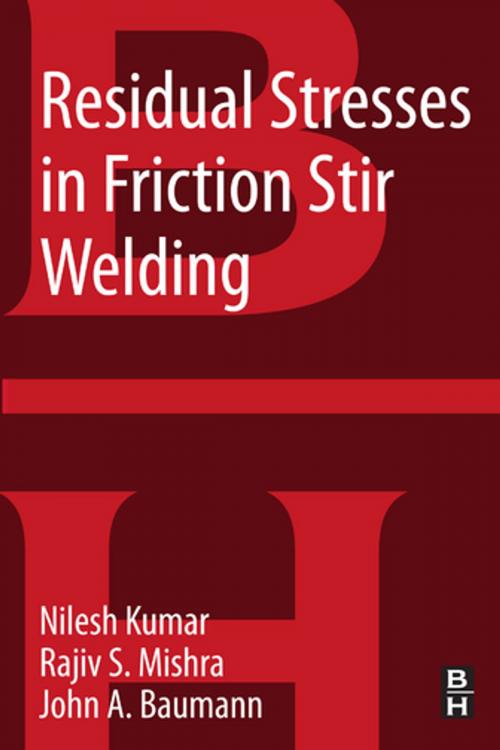Residual Stresses in Friction Stir Welding
Nonfiction, Science & Nature, Technology, Metallurgy, Material Science| Author: | Rajiv S. Mishra, John A. Baumann, Ph.D., Nilesh Kulkarni, Ph.D. | ISBN: | 9780128007327 |
| Publisher: | Elsevier Science | Publication: | November 20, 2013 |
| Imprint: | Butterworth-Heinemann | Language: | English |
| Author: | Rajiv S. Mishra, John A. Baumann, Ph.D., Nilesh Kulkarni, Ph.D. |
| ISBN: | 9780128007327 |
| Publisher: | Elsevier Science |
| Publication: | November 20, 2013 |
| Imprint: | Butterworth-Heinemann |
| Language: | English |
This book describes the fundamentals of residual stresses in friction stir welding and reviews the data reported for various materials. Residual stresses produced during manufacturing processes lead to distortion of structures. It is critical to understand and mitigate residual stresses. From the onset of friction stir welding, claims have been made about the lower magnitude of residual stresses. The lower residual stresses are partly due to lower peak temperature and shorter time at temperature during friction stir welding. A review of residual stresses that result from the friction stir process and strategies to mitigate it have been presented. Friction stir welding can be combined with additional in-situ and ex-situ manufacturing steps to lower the final residual stresses. Modeling of residual stresses highlights the relationship between clamping constraint and development of distortion. For many applications, management of residual stresses can be critical for qualification of component/structure.
- Reviews magnitude of residual stresses in various metals and alloys
- Discusses mitigation strategies for residual stresses during friction stir welding
- Covers fundamental origin of residual stresses and distortion
This book describes the fundamentals of residual stresses in friction stir welding and reviews the data reported for various materials. Residual stresses produced during manufacturing processes lead to distortion of structures. It is critical to understand and mitigate residual stresses. From the onset of friction stir welding, claims have been made about the lower magnitude of residual stresses. The lower residual stresses are partly due to lower peak temperature and shorter time at temperature during friction stir welding. A review of residual stresses that result from the friction stir process and strategies to mitigate it have been presented. Friction stir welding can be combined with additional in-situ and ex-situ manufacturing steps to lower the final residual stresses. Modeling of residual stresses highlights the relationship between clamping constraint and development of distortion. For many applications, management of residual stresses can be critical for qualification of component/structure.
- Reviews magnitude of residual stresses in various metals and alloys
- Discusses mitigation strategies for residual stresses during friction stir welding
- Covers fundamental origin of residual stresses and distortion















